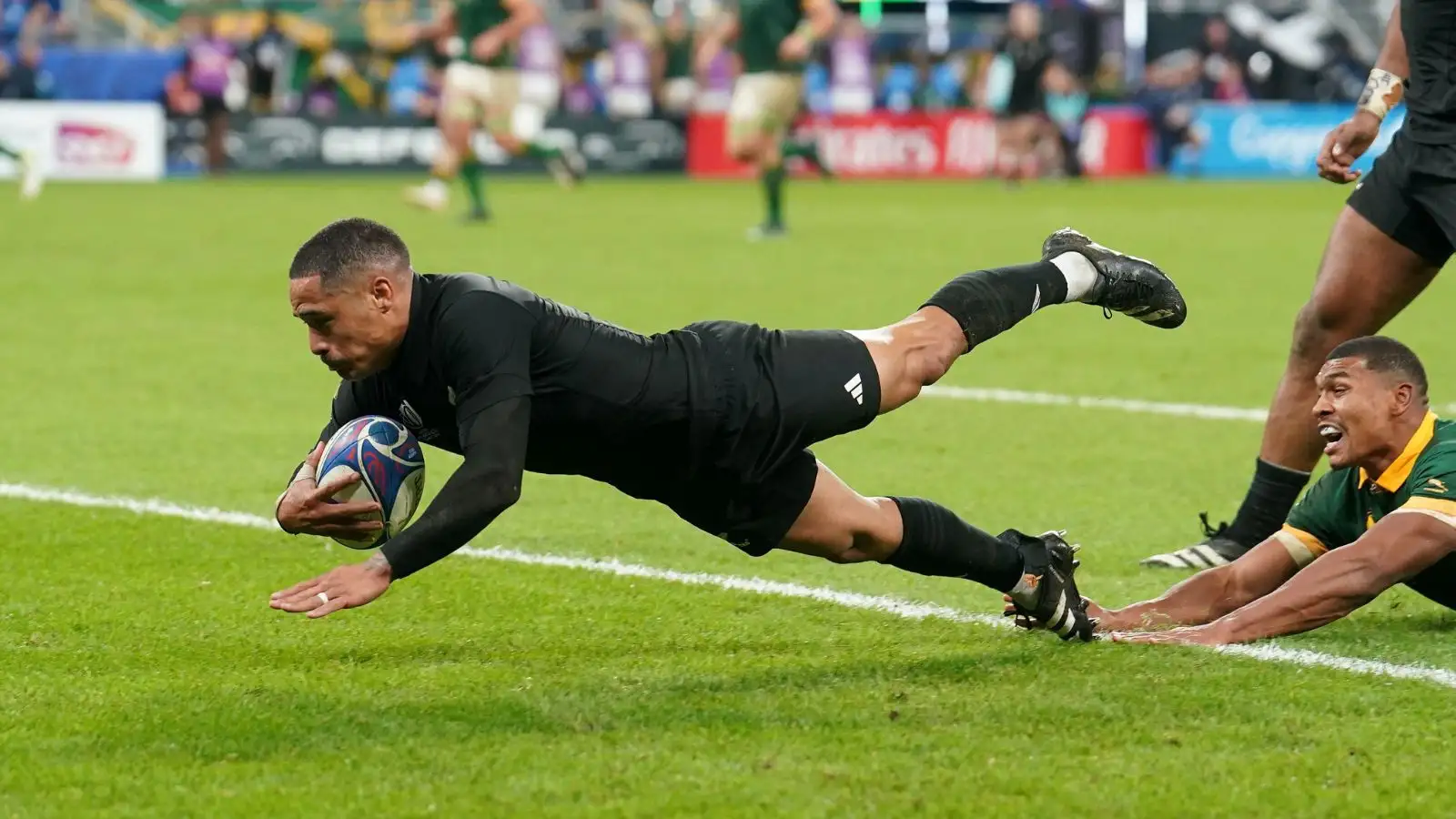
World Rugby has issued a statement neither confirming nor denying reports that they privately acknowledged that the All Blacks were unjustly impacted in the World Cup final against the Springboks. The controversy revolves around a disallowed try by All Blacks scrumhalf Aaron Smith, with reports suggesting that World Rugby informed the All Blacks privately that the try should have been allowed.
The disallowed try occurred in the 54th minute when Aaron Smith scored, but the attempt was nullified due to a preceding knock-on by Ardie Savea. Television match official Tom Foley identified the knock-on four phases before Smith’s attempt, potentially exceeding the two-phase limit for TMO reviews as per World Rugby’s mid-2022 protocol update.

According to New Zealand media (Stuff), World Rugby has privately acknowledged that the ruling was a breach of the rules, but this acknowledgment has not been made public. The report sparked widespread ridicule on social media, with criticism directed at World Rugby for privately acknowledging the error after the All Blacks sought answers following their final defeat. This situation contrasts with the usual public stance of World Rugby, which has historically shown solidarity with match officials and condemned criticism openly. The controversy highlights the challenges and scrutiny faced by sports organizations in handling contentious officiating decisions during high-profile events.
WORLD RUGBY STATEMENT ON PRIVATE MESSAGE TO ALL BLACKS
In response to the media report regarding the alleged private acknowledgment of an error in disallowing Aaron Smith’s try in the World Cup final, World Rugby issued a brief statement on Tuesday. While standing by their match officials, the governing body did not confirm or deny the specific allegation made against them.
The statement emphasized World Rugby’s policy of not publicly commenting on match official decisions, a stance reiterated before Rugby World Cup 2023. The governing body expressed its support for the match officials, acknowledging the challenging nature of their role in professional sport and highlighting their exceptional standard of performance.
Notably, the statement did not explicitly address whether World Rugby had privately communicated to the All Blacks about an error by the Television Match Official (TMO) in disallowing the try. The cautious response may reflect the sensitivity of the situation and the potential consequences of commenting on specific officiating decisions.
World Rugby also highlighted the broader issue of the human impact of criticism directed at match officials, mentioning the unfortunate consequences such as online hate and threats. The statement underscores the need for respectful discourse in discussing and critiquing officiating decisions in sports.
Leave a Reply